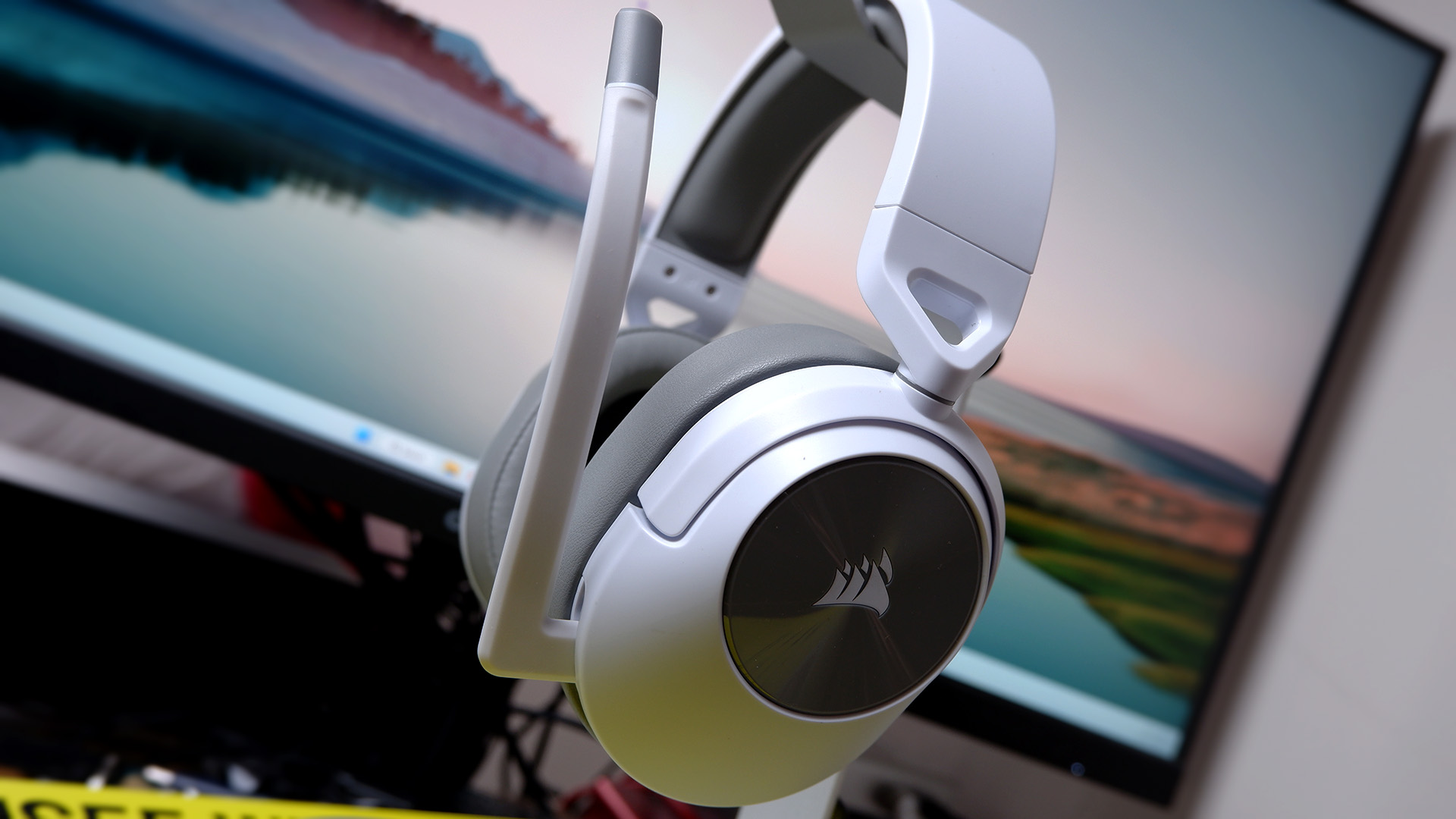Our Verdict
The Corsair HS55 Wireless takes the best budget headset and cuts the cord. There's a lot to like here, but wireless connectivity has seen both the HS55's affordable price tag and excellent microphone cut.
For
- Surprisingly lightweight
- Well-built
- Good audio for gaming
- Flip-to-mute microphone
- Wireless convenience
Against
- Microphone quality isn't up to par with wired model
- Cheap-looking plastic construction
- Sound profile is nothing spectacular
PC Gamer's got your back
I've long appreciated Corsair's no-nonsense approach to budget gaming headsets. Think about what you really want in a budget headset: good audio, a comfortable build, can take a drop or two, and come with a clear-sounding microphone. To get all four is important to me, even in a cheap headset, but last year I came away impressed with Corsair's HS55 Stereo—a neatly wired package with a parsimonious price tag of just $45, which I rate as the best cheap gaming headset right now.
Today, I'm looking at those same headphones. Why? Because this time they're wireless.
There are a lot of similarities between the wired and wireless HS55 cans, and that means you can expect much of the same physical build quality and specs from the wireless pair as I wrote in my initial Corsair HS55 review. To save you a click, and since there are differences over the wireless connection, here are my thoughts from over a week living with the wireless pair.
The audio quality on the HS55 Wireless is decent, with enough clarity throughout the frequency range necessary for gaming. These cans work great in Destiny 2 and I found it easy enough to pick out positional cues well while wearing them. That said, they can become a little woolly with lots of calamitous noise all happening at once. That's a rare occurrence, and they sound surprisingly decent in racing games even when the volume's cranked high, so I'll chalk that mostly up to Destiny 2 itself being pure chaos at times. Generally speaking I found the HS55 Wireless to be clear enough for gaming with across genres.
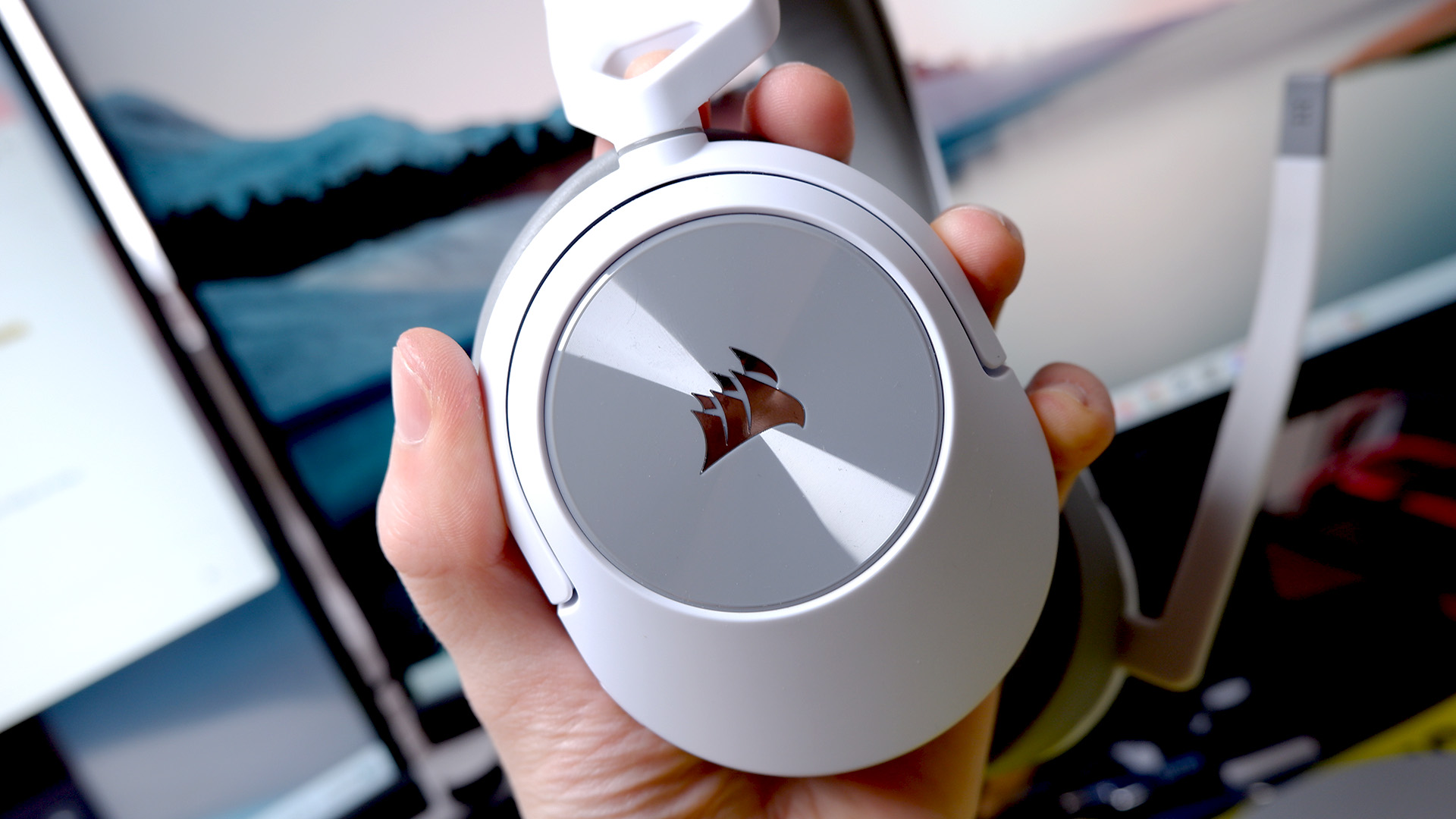
Type: Dynamic, closed-back
Frequency response: 20–20,000Hz
Drivers: 50mm
Nominal impedance: 32Ω
Connectivity: 2.4G, Bluetooth
Weight: 274g
Price: $100 | £100 | €120
As for listening to music, there's not much special here. These are pretty standard 50mm drivers and they sound like it. The bass is a bit too heavy, though thankfully not entirely blown out like some gaming headsets. The mid tones are sometimes tough to discern from one another, which has been particularly noticeable as I've been listening to Skrillex's latest album this week and there's a lot going on at any one time during it. Altogether I found I quickly got accustomed to the HS55's sound profile, and it's not unpleasant for listening to some tunes with. The HS55 produces what I would consider a fairly standard sound for a closed-back gaming headset with a bit of an overly bass-heavy profile, which is fine.
I'd say if you're looking for something a bit more musically inclined, you should check out Drop's PC38X or the HyperX Cloud Alpha Wireless. Both pairs are impressive on the audio side of things, though admittedly pricier than Corsair's pair for it.
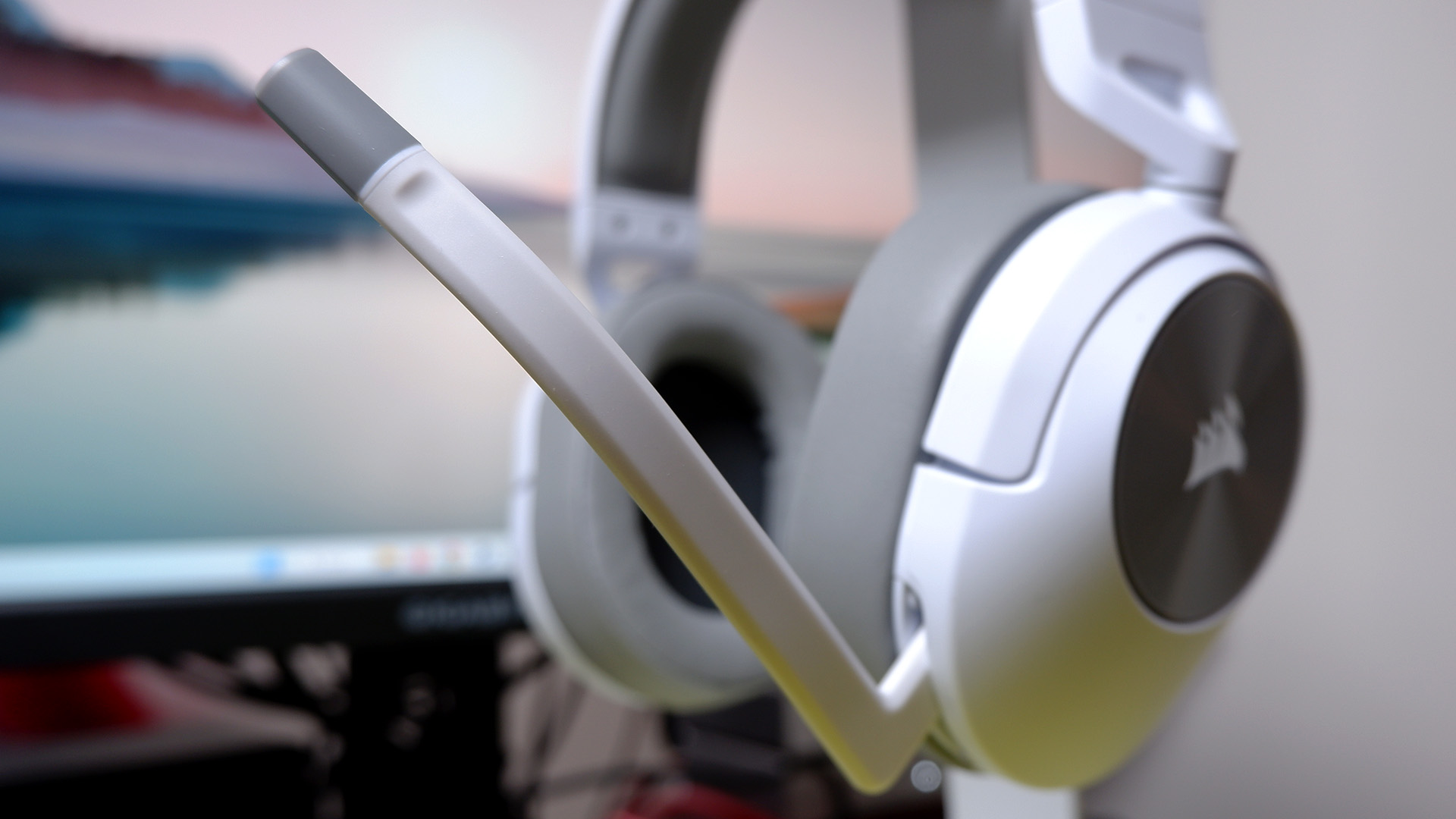
Now let's talk about the microphone, because I have to say this is the biggest disappointment of the wireless HS55 headphones versus the wired pair. I was, and still am, impressed by the clarity of the microphone on the wired HS55—the mic comes through crystal clear and there's no hissing or interference notable in the end recording. That was not the case for the wireless model, however.
I've recorded our usual microphone test for both the wireless model and the wired model again, and the wired pair just sounds a whole lot better. The wireless connection seems to add a whole lot of noise to the output on the HS55 Wireless. The output is clear enough to be heard, and I've used this headset in meetings and a few group gaming sessions without any complaints, but I'm a little sad to see the HS55's strongest feature become one of its weakest as a trade-off for its wireless functionality
The mic does remain a neat flip-to-mute unit with the wireless pair, and it's fairly simple to bend into place for the best pick up. You can also bump the microphone's volume in the iCUE app, which is a nice addition as I found the wired headset was a little quiet at times.
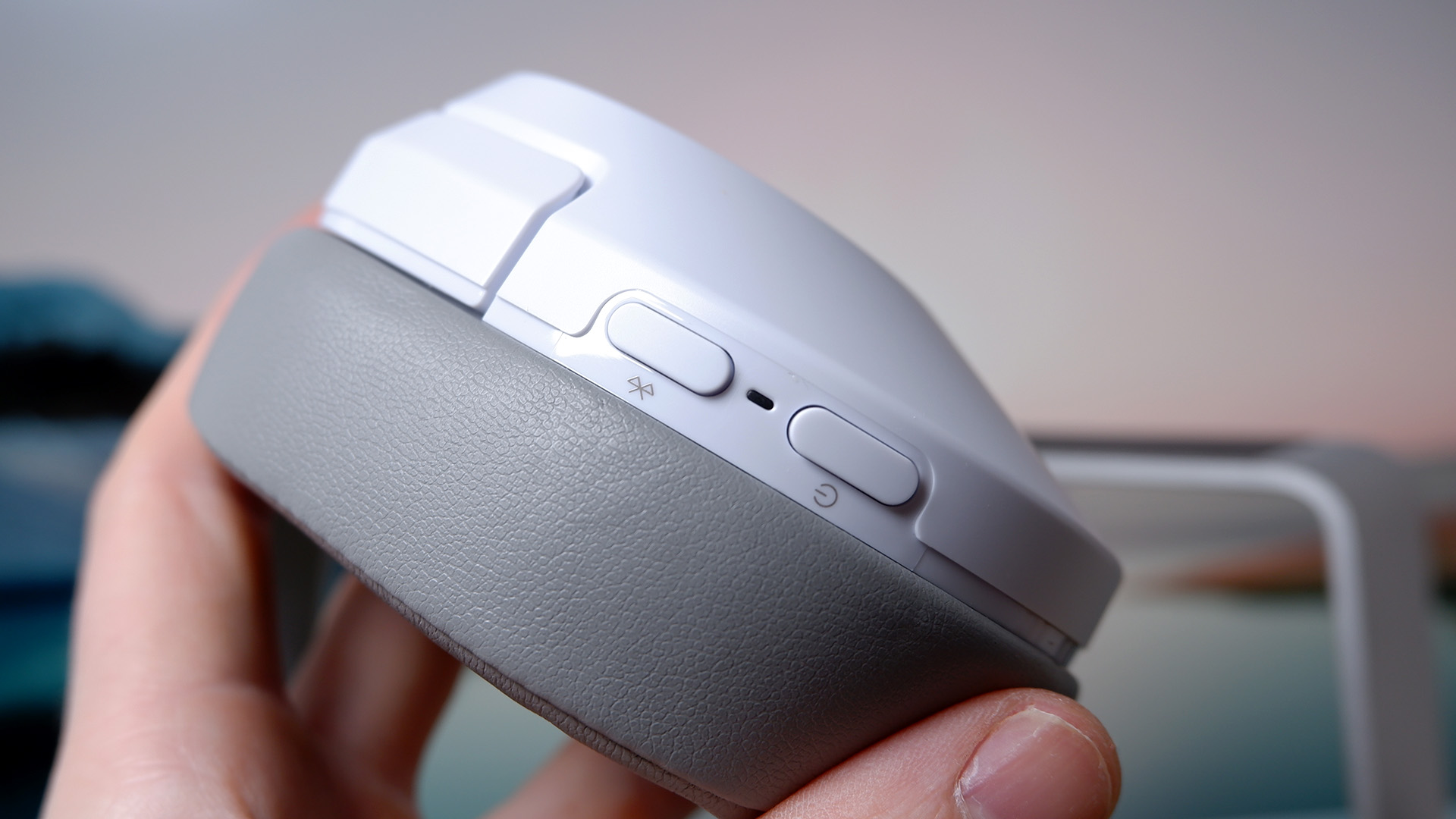
There is one other big drawback to picking up the wireless model of the HS55, however. To cut the cord, you'll need to part with $100/£100/€120. That's more than double the going price of the standard wired HS55 headphones.
There are bountiful reasons as to why a wireless gaming headset is a good decision. The most obvious being the freedom to get up and walk away from your desk at any time without dragging your PC tower off with you. A wired headset is hardly a hassle, but I'll admit it is nice to not have to keep taking my headset on and off every time I run off for a bathroom break or to grab a coffee between raid encounters. I've been testing a wired headset for the past few weeks, and so the Corsair's wire-free functionality has been a bit of a blessing.
It also goes the distance. I got up and walked downstairs and out of my back door into the garden and through all the floors and walls the Corsair's audio didn't falter once.
But the price premium does take the shine off the HS55, Corsair's quality is high, but admittedly this is a headset that's unremittingly plastic in its construction. That didn't matter much at $50, but with this sort of price tag I am left wanting a bit more of a premium feel.
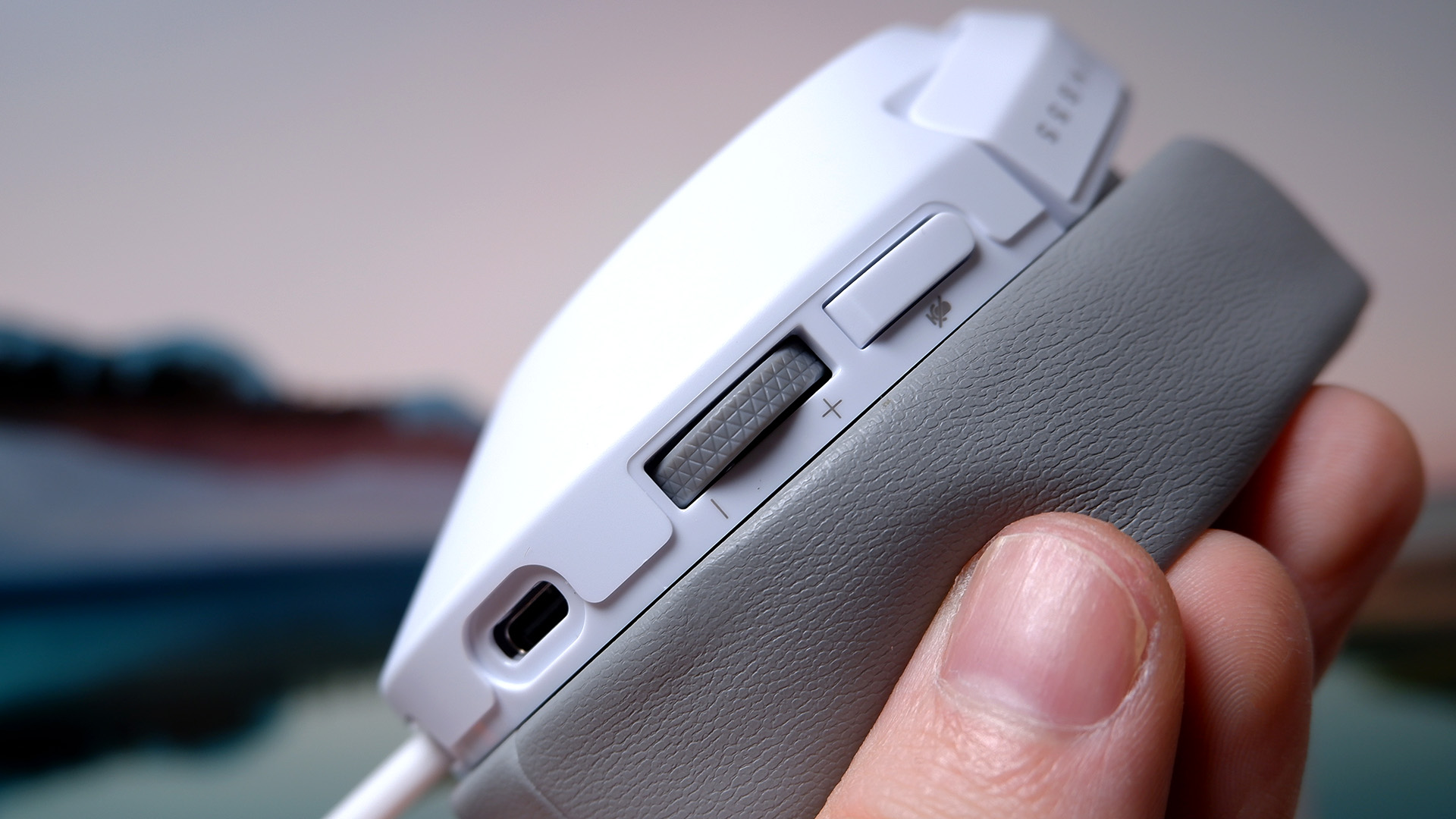
The HS55 Wireless is plenty comfortable, however. I've been wearing it for the better part of eight-hour work days and only towards the very end of the day do my ears start to ache a touch and I want rid of this thing. That's actually pretty good compared to some other budget headsets I've been using lately—the Scarlett HP60 MkIII headset included with the Scarlett 2i2 bundle I reviewed last year starts to get uncomfortable to wear after just a couple of hours.
Corsair's trick here seems to be getting its wireless HS55 headset down to an impeccable weight of just 274g. Now Corsair says that's actually lighter than the wired HS55 at 284g, which I absolutely could not take at face value from the Corsair website, so I got my scales out and weighed them both.
The wired HS55 headset with its cable weighs in at 275g, and the HS55 Wireless is bang on at the advertised 274g, which means Corsair has kept pretty much the same weight despite adding a whole battery and extra controls to the HS55 Wireless. I'm impressed, honestly.
The lightweight nature of the Corsair HS55 Wireless does make a difference to its long-term comfort, and it's notably lighter than other wireless headsets we've seen recently, including the HyperX Cloud Alpha Wireless and SteelSeries Arctis Nova 7.
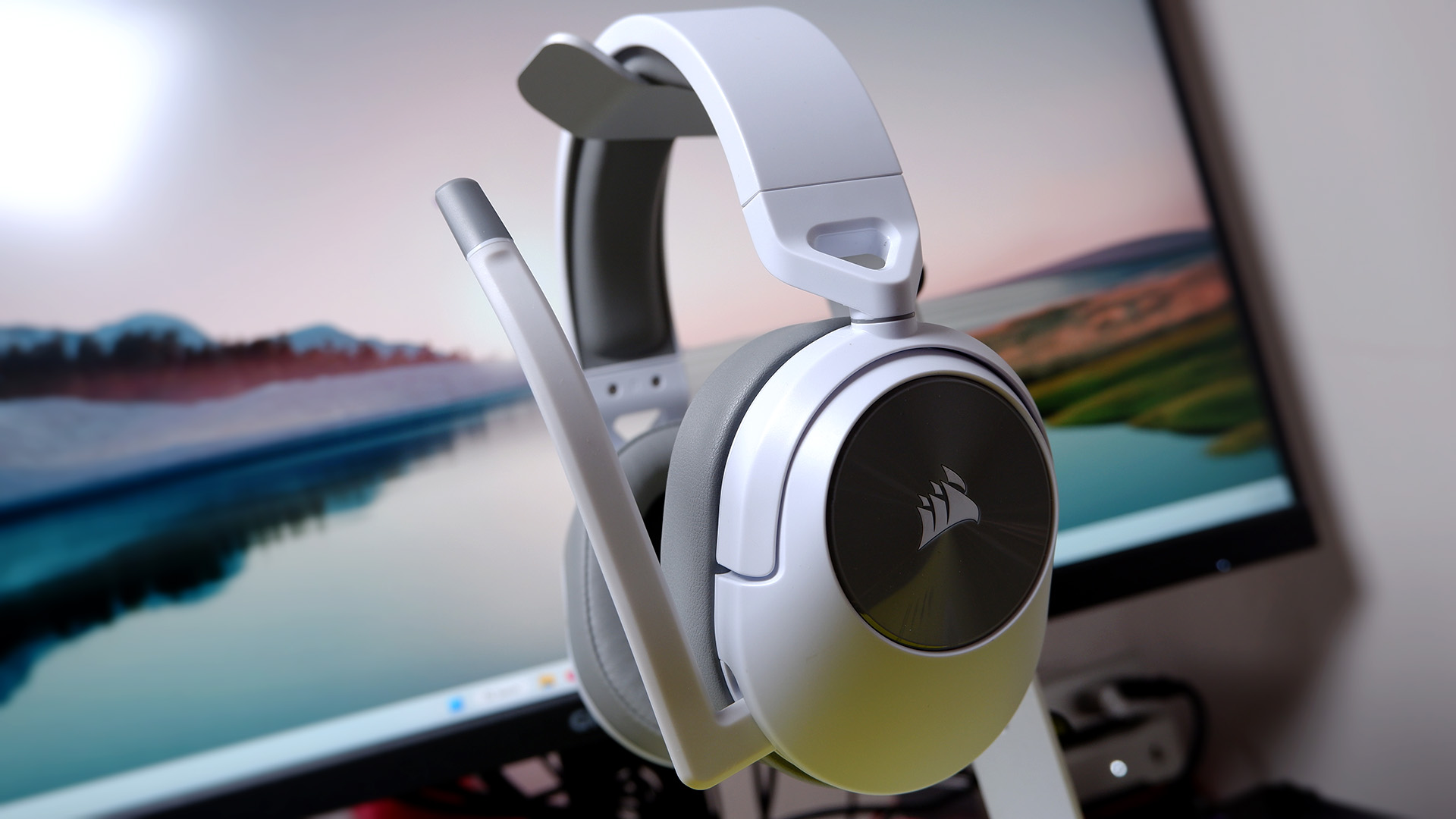
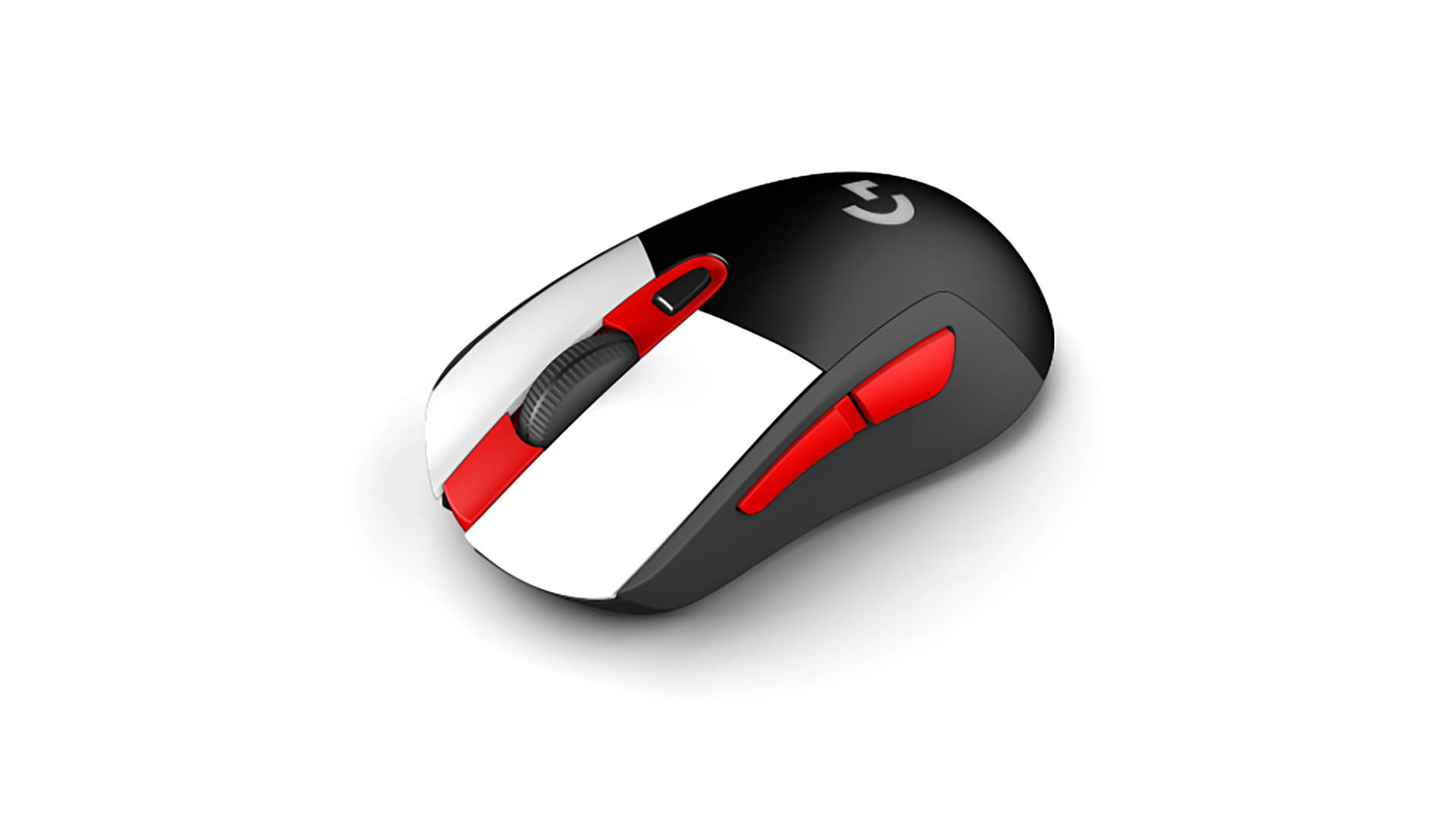
Best gaming mouse: the top rodents for gaming
Best gaming keyboard: your PC's best friend...
Best gaming headset: don't ignore in-game audio
The trade-off here is battery life. The HS55 Wireless claims to last around 24 hours, and in practical terms that's seen me only charge it one time in the past week of use. Not bad, but miles off the Cloud Alpha's marathon 300-hour battery life.
The Corsair HS55 Wireless is a bit of a mixed bag. I like that Corsair's stuck to a well thought out formula for the HS55's design, and I love that it's managed to make the wireless version basically the same weight as the wired. What I don't love is the price tag—it being so high makes me really second-guess whether I need to cut the cord or if I'd actually prefer the wired HS55 for less than half the price. What has me leaning towards the wired model is its excellent microphone fidelity, which the wireless HS55 just can't deliver.
On this sort of budget the Corsair HS55 Wireless is good enough if you're desperate to cut the cord and free yourself from being tethered to your desk. But if you're not sure whether wireless is worth it, you could spend a lot less and get yourself a really great wired headset instead. I think that's where I'd put my money.
The Corsair HS55 Wireless takes the best budget headset and cuts the cord. There's a lot to like here, but wireless connectivity has seen both the HS55's affordable price tag and excellent microphone cut.

Jacob earned his first byline writing for his own tech blog. From there, he graduated to professionally breaking things as hardware writer at PCGamesN, and would go on to run the team as hardware editor. He joined PC Gamer's top staff as senior hardware editor before becoming managing editor of the hardware team, and you'll now find him reporting on the latest developments in the technology and gaming industries and testing the newest PC components.
